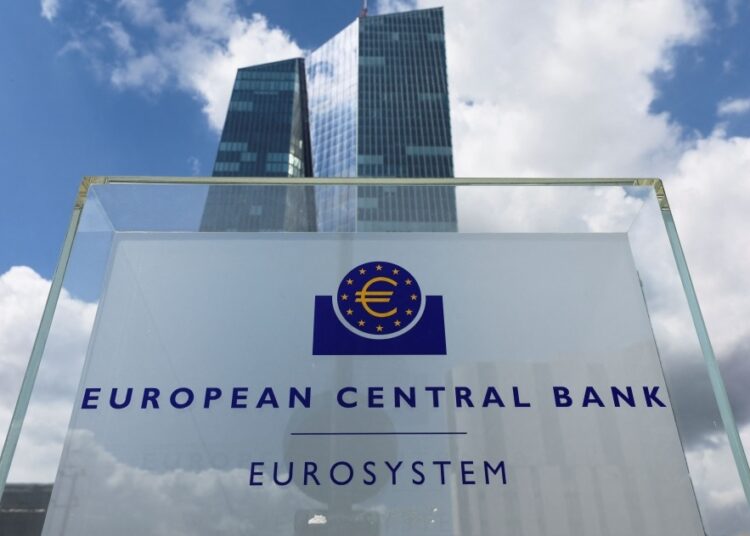STOCKHOLM – The International Monetary Fund called on the European Central Bank on Friday to keep raising interest rates until the middle of 2024 and on EU finance ministers to tighten fiscal policy, in concerted action to bring down high inflation.
The IMF’s head of the European Department Alfred Kammer told a news briefing ahead of a meeting of EU finance ministers and central bank governors that inflation was the biggest worry.
“Our main policy recommendation is to defeat inflation and that means we need to use the instrument of monetary policy. For the ECB that means further tightening, tightening for longer, we estimate until mid-2024, in order to bring inflation down to target sometime in 2025,” the IMF’s head of the European Department Alfred Kammer said.
“Inflation is a tax, in particular on the poor, and that needs to be tackled,” Kammer said according to Reuters.
Headline inflation in the 20 countries using the euro was 6.9% year-on-year in March, but core inflation, which excludes large swings in energy and food prices, was even higher at 7.5%.
To bring inflation down to the ECB target of 2%, the central bank has been aggressively raising interest rates, taking them from zero in mid-2022 to 3.5% in March, but few in the markets expect the policy tightening to continue beyond 2023.
Kammer said EU finance ministers also had to support the ECB by reducing the fiscal stimulus to the economy that they rolled out during the COVID-19 pandemic and then continued during the cost-of-living crisis triggered by the Russian invasion of Ukraine.
“Inflation cannot be just dealt with by the central bank, you need fiscal policy to support it,” Kammer said, adding an expected substantial reduction in budget deficits in EU countries did not materialise because government packages to support citizens against high energy prices were extended.
“So …we are recommending now, with energy prices coming down, …to phase out cost of living packages and, if they’re not being phased out, to make them more targeted,” Kammer said.
“When you have a fiscal contribution, that means the (ECB) tightening does not need to be so high, it means interest rates can stay lower, that means less financial stress,” he said.






Discussion about this post